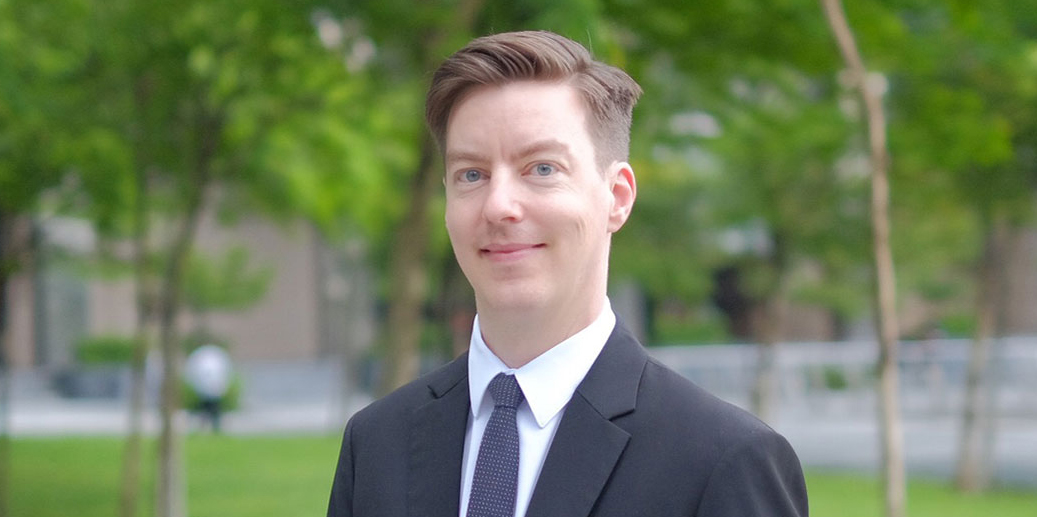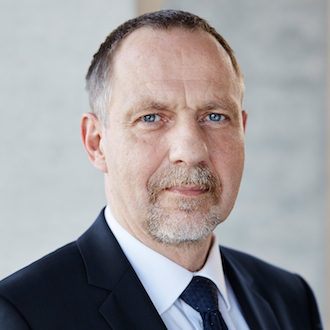Opening doors in Asia
Both science and Swiss businesses are benefiting from the ETH science hub in Singapore. The newly founded Switzerland Technology Impact Platform (STIP) is helping Swiss SMEs to gain a foothold in Asia. For Remo Burkhard, Managing Director of the Singapore-ETH Centre, STIP offers an opportunity to link research with practice, which is in everybody’s interests.

ETH News: Mr Burkhard, how did the Singapore-ETH Centre (SEC) come to work with small and medium-sized Swiss companies?
Remo Burkhard: Over the last three years or so, more and more Swiss companies have been contacting us at SEC with matters that are not directly research-related. For example, we were asked to share our experience and opinions regarding market entry in Asia. If these companies’ solutions and products align with one of our two research focuses, namely “future cities” or “future resilience systems”, the Centre can provide specific knowledge and key contacts. We saw an increase in demand and began with an information session in Switzerland for interested companies. The positive feedback and the growing number of people involved with Swiss exports and startup support and financing showed us that many companies wanted a glimpse of the local situation – but there was one thing that surprised me.
And what was that?
In addition to Singapore, more than half of the interested parties wanted to find out more about Indonesia. That’s why we will be leading a study trip to Jakarta and Singapore in early March with around a dozen company representatives.*
What aces have you got up your sleeve there?
ETH Zurich has had a presence in Singapore with highly qualified researchers for seven years now. Today, there are 160 people working in this region with enormous potential. We are at the forefront when it comes to the extremely topical, socially relevant issue of cities of the future. As a result, we can identify trends emerging in south-east Asia that may have a global impact. In some cases, we’re even setting new trends; for example, with new construction materials, robots that can lay tiles or the rediscovery of the bicycle in Asia’s big cities. Thanks to panel discussions, scientific events, presentations by people working in the field and discussions with pioneers, we are constantly acquiring new knowledge that can also benefit businesses in Switzerland. In addition, we have great contacts with government authorities and scientific offices in the city state. Our experience communicating with these bodies can also benefit Swiss companies trying to enter the market.
“STIP offers Swiss SMEs a promising stepping stone to gaining a foothold in Asia. In turn, our SEC researchers learn a great deal from the questions and problems that arise when high-tech products are launched in a highly dynamic market.”Detlef Günther, ETH Vice President Research and Corporate Relations
Exports in Asia are also being promoted, for example, by the government-funded agency Switzerland Global Enterprise (S-GE). Isn’t there overlap with the new SEC offerings?
No, the different platforms complement and support each other. S-GE, for example, is also an active partner of our platform. We offer our support wherever other organisations seek our expertise. We focus on companies in our fields, particularly those that offer groundbreaking innovations and are closely involved with research and development. As mentioned before, our local experience also helps to overcome cultural barriers and thus open doors. After all, there’s stiff competition for talent in Singapore too. The SEC receives many excellent applications. Sometimes, and if the candidate requests it, we pass on these inquiries to companies.
Do you have any other ideas?
Yes, the next idea is to conduct suitable research projects at our centre together with interested companies and to adapt tried-and-tested solutions from Europe to the local conditions in Asia. A second, long-term idea is to build a “Swiss House”, a living lab that can be used to demonstrate our SEC concepts – such as maximum energy efficiency – as well as companies’ most innovative products. We hope that this will make the potential of Swiss technology more tangible for the cities of the future and generate publicity. This model house could be a hotel, school or office building.
How does building this bridge for businesses affect ETH’s core activities of research, teaching and knowledge transfer?
In research, it is extremely important to understand the way things are currently done in order to identify knowledge gaps. Today, it is often possible to find a good solution only once you have first understood all aspects of a problem. The desire to put scientific concepts into practice is also very important. This requires that there be a mutual interest and close interaction between science and industry. Our platform is helping us to achieve these goals here in south-east Asia.
You have been part of the SEC from the beginning and helped to shape it. What personally drives you in your work at STIP?
What amazes me each day in Singapore is the enormous range of opportunities the region has to offer bold and enterprising individuals. With their intelligent solutions and high quality, Swiss companies are ideally positioned to succeed in Asia. Still, sometimes it seems like the large distance from Europe and perceived cultural barriers make companies hesitant to seize the opportunities available to them. We hope that STIP will show companies – especially SMEs – that they can successfully break into the market here even with their limited resources.
Further information
Spots are still available for the Study Trip to Jakarta and Singapore from 1 to 7 March 2017.

Comments
No comments yet